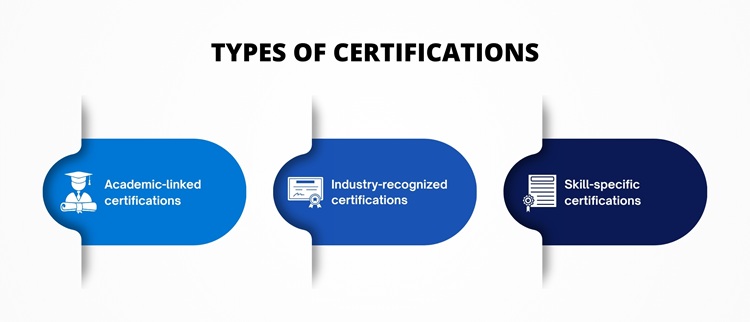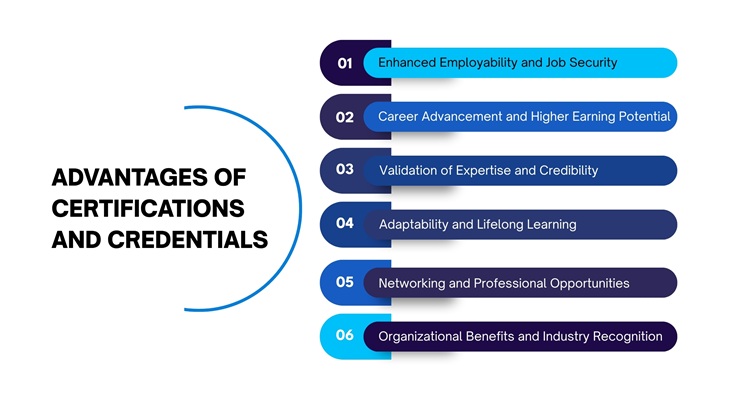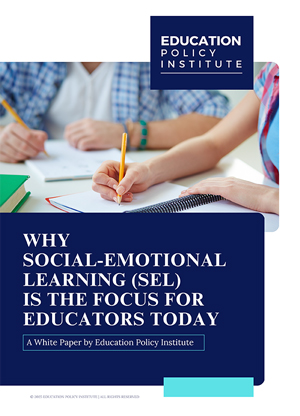In a rapidly changing job market, skills are no longer just desirable, they are the defining currency of employability. Degrees continue to hold value, but employers today look beyond traditional education to assess what an individual can actually do. This is where certifications and credentials step in, serving as trusted indicators of verified capability and practical expertise. They not only validate knowledge but also communicate commitment, adaptability, and readiness for new challenges. As industries evolve with technology, globalization, and automation, professional certifications are emerging as the new fuel powering sustained career growth.
The Shifting Nature of Employability
The nature of work has transformed. With the digital economy expanding and new technologies reshaping every sector, job descriptions are constantly rewritten. Employers increasingly seek professionals who can demonstrate specific, updated skills rather than rely solely on academic qualifications obtained years ago. Traditional degrees, while foundational, often lag behind the pace of industry innovation. Certifications help bridge this gap by keeping professionals aligned with current tools, trends, and standards.
For example, digital skills, data analytics, cybersecurity, and sustainability management have become core to modern workplaces. Short-term and specialized certification programs allow learners to quickly gain proficiency in these high-demand areas. This ability to continuously reskill and upskill is what keeps employees relevant and competitive. Essentially, credentials translate academic learning into market-ready competence.
Why Certifications and Digital Credentials Matter in Today’s Professional Sphere
In the current job market, certifications and credentials have become key indicators of competence and readiness. Employers now seek clear, measurable proof that candidates can meet evolving industry demands, and certifications provide that evidence. Designed around practical learning and assessment, they validate not just knowledge but its real-world application. Professionals at every stage, whether entering the workforce or advancing mid-career, pursue certifications to stay current, gain promotions, or transition into new roles, especially in fast-moving sectors such as technology, healthcare, and finance.
Alongside traditional certifications, digital credentials have transformed how achievements are recognized and shared. These secure, verifiable badges and certificates exist online and can be instantly authenticated through embedded details about the skill, issuing body, and completion date. Their portability enables professionals to display verified accomplishments across global platforms, increasing transparency and credibility in hiring processes. This shift toward digital proof of learning has made career mobility more flexible and professional growth more visible.
Further strengthening this evolution are technologies like blockchain-based verification, which prevent falsified claims and preserve authenticity. Such systems ensure that every credential earned is genuine, traceable, and universally recognized. Together, certifications and digital credentials bridge the gap between education and employment, creating a dynamic framework where skills are continuously updated, verified, and valued across industries.
Types of Certifications and Their Relevance
Certifications can be broadly classified into three categories: academic-linked, industry-recognized, and skill-specific credentials.

- Academic-linked certifications are often offered through universities or educational institutions. They extend formal education by providing specialized knowledge in emerging fields such as artificial intelligence, marketing analytics, or sustainable business.
- Industry-recognized certifications are issued by professional bodies or sectoral organizations and serve as benchmarks of professional competence. They are particularly valuable in fields that require standardized knowledge, such as finance, project management, or engineering.
- Skill-specific certifications focus on a particular tool, software, or technique, examples include courses in programming languages, design software, or business analytics platforms. These are ideal for immediate skill application and are often used to strengthen resumes for technical or creative roles.
Advantages of Certifications and Credentials
Beyond validating skills, certifications provide multiple professional and personal advantages. Here’s how they enhance employability, credibility, and growth.

1. Enhanced Employability and Job Security
Certifications serve as tangible proof of an individual's skills and knowledge in a specific field. They can significantly improve employability by:
- Differentiating Candidates: In competitive job markets, certifications can set candidates apart from others with similar educational backgrounds. They demonstrate a commitment to professional development and a proactive approach to career advancement.
- Increasing Hiring Opportunities: Employers often prioritize candidates with relevant certifications, as they are perceived to require less training and can contribute more effectively from the outset.
- Improving Job Retention: Certified professionals may experience greater job security, as their specialized skills are valuable to employers, making them less likely to be replaced.
2. Career Advancement and Higher Earning Potential
Holding certifications can open doors to higher-level positions and increased earning potential by:
- Qualifying for Promotions: Many organizations require specific certifications for advancement. Obtaining these credentials can make employees eligible for promotions and leadership roles.
- Accessing Specialized Roles: Certain career paths, such as project management, data analysis, and IT security, often require specialized certifications, enabling professionals to enter and excel in these fields.
- Negotiating Higher Salaries: Certified professionals may have the leverage to negotiate higher salaries, as their credentials signify expertise and value to employers.
3. Validation of Expertise and Credibility
Certifications validate an individual's expertise in a particular area, enhancing their credibility by:
- Demonstrating Competence: Earning a certification requires passing rigorous exams and assessments, proving that the individual possesses the necessary skills and knowledge.
- Building Trust with Employers and Clients: Certifications can instill confidence in employers and clients, assuring them of the professional's capabilities and commitment to quality.
- Establishing Professional Reputation: Holding recognized certifications can enhance a professional's reputation within their industry, leading to increased respect and recognition.
4. Adaptability and Lifelong Learning
In today's rapidly changing job market, adaptability is crucial. Certifications promote continuous learning by:
- Encouraging Skill Development: Many certifications require ongoing education or recertification, motivating professionals to stay updated with industry trends and advancements.
- Facilitating Career Transitions: Certifications can provide the necessary skills and credentials for individuals looking to switch careers or industries, offering a structured pathway for transition.
- Supporting Personal Growth: The process of earning and maintaining certifications can foster a mindset of lifelong learning, contributing to personal and professional development.
5. Networking and Professional Opportunities
Obtaining certifications can expand professional networks and open doors to new opportunities by:
- Connecting with Industry Peers: Certification programs often provide access to exclusive events, forums, and communities, allowing professionals to network with peers and industry leaders.
- Enhancing Visibility: Being certified can increase a professional's visibility within their field, leading to more opportunities for collaboration, mentorship, and career advancement.
- Providing Access to Exclusive Resources: Many certification bodies offer members access to resources such as job boards, webinars, and industry reports, which can aid in career development.
6. Organizational Benefits and Industry Recognition
For organizations, encouraging employees to obtain certifications can lead to:
- Improved Workforce Competence: Certified employees bring specialized knowledge and skills, enhancing the overall competence of the workforce.
- Increased Productivity: With up-to-date skills, certified professionals can perform tasks more efficiently, leading to increased productivity.
- Enhanced Organizational Reputation: Organizations with a certified workforce are often viewed more favorably by clients and partners, enhancing their reputation in the industry.
- Compliance and Risk Management: In certain industries, certifications ensure that employees are knowledgeable about regulations and best practices, aiding in compliance and risk management efforts.
The Economic and Institutional Perspective on the Certification Trend
From an economic standpoint, certification systems contribute to workforce development and productivity. When employees are trained and certified in emerging technologies or practices, organizations benefit from reduced training costs and improved efficiency. This alignment between skill supply and industry demand also strengthens national economies by creating workforces that can meet evolving global standards.
Educational institutions and training providers are also adapting by designing outcome-oriented programs that respond directly to industry trends. The inclusion of practical assessments and micro-credentials ensures that learning outcomes remain relevant to employment contexts. This collaboration between academia and industry is essential for developing talent pipelines that sustain innovation and competitiveness.
Challenges and Considerations in Certification and Credentialing
While the growth of certifications offers many advantages, it also brings challenges.
- Credibility matters as not all online certifications hold the same value. Candidates must research and select programs that are recognized by reputable industry bodies or widely respected organizations.
- Cost and accessibility can be barriers. High-quality certifications often come with significant fees, limiting participation for some learners. To make this more inclusive, many platforms now offer modular or open-access learning pathways that allow learners to earn credentials in stages.
- Oversaturation is another concern. When certifications become too common or when learners collect them without depth of understanding, their value can diminish. The emphasis should remain on quality, not quantity; certifications should complement experience, not replace it.
Certifications That Build the Future, Not Just Careers
Looking ahead, the certification landscape is expected to become even more dynamic and integrated. Technologies like artificial intelligence and data analytics are being used to personalize learning and track progress. Employers are moving toward skills-based hiring, where verified competencies take precedence over degrees. Micro-credentials and modular certificates are gaining momentum, allowing professionals to build cumulative skill portfolios throughout their careers.
Furthermore, cross-border recognition of digital credentials is likely to expand, enabling professionals to work globally with verified digital skill proofs. Certifications will also increasingly incorporate soft skills such as communication, collaboration, and ethical reasoning, areas that automation cannot replace. Ultimately, the future of work belongs to those who can continually prove their readiness. Certifications, combined with experience and adaptability, will be central to this evolution.
Conclusion
In a world where skills quickly become outdated, certifications and credentials have emerged as vital tools for career growth. They stand for more than formal qualifications, reflecting initiative, expertise, and a readiness to adapt to change. By validating both technical and interpersonal abilities, certifications provide professionals with the confidence and credibility to progress in their fields. As industries evolve, those who pursue continuous certification will not merely keep up with transformation but shape it, showing that the future belongs to lifelong learners committed to constant growth and improvement.
Latest
Trends blogs
- From Vision to Impact: Closing the Gender Gap in STEM Education
- Automation, Artificial Intelligence, and the Future of Human-Centered Education
- Mid-Career Education in a Changing Labor Market
- The Next Phase of STEM Education: The Role of Artificial Intelligence in Classroom Curricula
Focus blogs
- Research-Driven Education: Strengthening Strategies, Policies, and Classroom Practice
- Professional Certifications for Career Growth: What Students and Young Professionals Need to Know
- Building a High-Impact Center of Excellence: What You Need to Know
- Beyond Graduation: The Importance of Lifelong Learning in Higher Education





